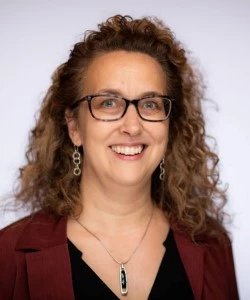About Carbon & Place
Carbon & Place is a family of tools developed as part of the Energy Demand Research Centre.
A new name, the same mission
In 2020, with the support of the Centre for Research into Energy Demand Solutions (CREDS), we launched the Place-Based Carbon Calculator, the PBCC. The tool was intended to help communities, planners, and policymakers understand how carbon footprints vary from place to place and what can be done to reduce them. The PBBC was a big success, widely used by people across England, and received several updates. Unfortunately, all good things must come to an end and in 2023 CREDS reached the end of its funding period and closed down. Fortunately, the newly established Energy Demand Research Centre (EDRC) agreed to take on and expand the PBCC for the next five years. The PBCC became part of the EDRC Place Theme, and in 2024 this website was relaunched as Carbon & Place.
The rebrand was more than cosmetic, the PBCC became one of many tools offered by Carbon & Place. This allows us to go into more detail about specific topics, such as transport or retrofits, while also expanding and improving upon the original PBCC. Carbon & Place will be updated regularly with new features and improvements.
How do you use Carbon & Place?
Most of the tools are interactive maps of the UK. You can pan and zoom around the country and change the data shown on the map using the menu bar on the right of the screen. Clicking on any of the LSOAs shown on the map will bring up a local report card. The report card contains more information on how the carbon footprints were calculated, as well as comparisons with other areas. The report card also gives useful information about contributing factors such as how well insulated homes are or how far the average person drives per year.
Free, for everyone, forever
The tools on Carbon & Place are developed as Open-Source Software and, as much as possible, use Open Data. All of the tools are free to use, and most of the data is free to download. We believe it is important that taxpayer-funded research is transparent and accessible, so we will provide as much detail as possible about data and methods. In many places the tools have help popups (look for the ) that provide more information, or you can view all the documentation in the manual.
You can find all our source code on GitHub, and most of our outputs are free to download.
In a limited number of cases, the licensing terms of the data we use mean we cannot publish datasets in full. In these cases, we provide details on accessing the original data.
This website is licensed under a GNU Affero General Public License v3.0. For data download and license rules see the data page.
Who created Carbon & Place and how was it funded?
Carbon & Place was produced with funding from UK Research and Innovation, the Engineering and Physical Sciences Research Council, and the Economic and Social Research Council through the Energy Demand Research Centre, grant reference number EP/Y010078/1
The original PBCC was produced with funding from UK Research and Innovation through the Centre for Research into Energy Demand Solutions, grant reference number EP/R 035288/1
The Team
 Dr Malcolm Morgan, Senior Research Fellow in Transport and Spatial Analysis, University of Leeds.
Dr Malcolm Morgan, Senior Research Fellow in Transport and Spatial Analysis, University of Leeds.
Malcolm is a specialist in GIS with an interest in low carbon transport and housing.
Members of the original PBCC Team (2020 - 2023)

Professor Jillian Anable, Chair in Transport and Energy, University of Leeds.
Jillian has worked on mobility patterns, local policy evaluation and transport and decarbonisation for over 15 years.

Professor Karen Lucas, Professor of Human Geography, University of Manchester.
Karen has 20 years’ experience of social research in transport and mobilities employing a variety of mixed methods approaches to issues of mobility, accessibility, and social justice.

Mark Valleley, Technical lead, Transport for the South East.
Mark has 30 years’ experience as a transport planner spanning policy and strategy formulation as well as scheme development and delivery.

Steven Bishop, Associate Director, Steer Group.
Steve has 15 years’ experience in transport planning and economic development working across both the private and public sectors.